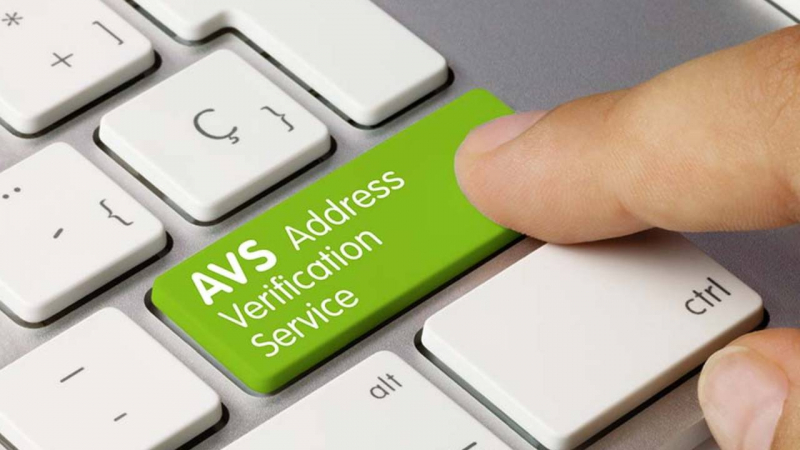Ensuring accurate customer information is essential for businesses navigating the rapid digital landscape. Address verification services (AVS) play a vital role in this process by confirming the validity of addresses entered during online transactions. Utilizing AVS not only reduces errors but also streamlines operations and enhances customer satisfaction.
Understanding the essentials of address verification services is crucial for any business aiming to thrive. These services minimize shipping delays and improve data quality, making their implementation a strategic necessity. By gaining insight into how AVS functions, you can make informed decisions that lead to better customer experiences and increased efficiency.
Introduction to Address Verification Service (AVS)
Address verification service (AVS) plays a key role in ensuring accurate customer addresses during transactions. It helps businesses minimize errors and improve data quality.

Definition
An address verification service (AVS) validates and standardizes addresses provided by customers. It checks real-time data against multiple databases to confirm an address's authenticity and accuracy.
Geographic availability
AVS can be utilized in various regions worldwide, depending on the provider. Different services may cover specific countries or areas, so it’s important to choose one that meets your location needs.
Contextual providers
Several providers specialize in address verification services (AVS). Some notable ones include:
- Smarty: Offers comprehensive global coverage and real-time checks.
- Experian: Provides advanced data solutions for address validation.
- Loqate: Focuses on delivering location intelligence and verifying addresses globally.
Understanding these options can help you select the right AVS for your business requirements.
How Address Verification Service Works
Address Verification Service (AVS) helps verify billing addresses during transactions. You input the billing address, and AVS checks this against records from the card issuer.
Transaction Flow
- During checkout, the customer enters the billing address and card details.
- This information gets sent to the payment processor.
- The payment processor queries the AVS database for a response.
AVS Response Codes and Meanings
AVS generates response codes indicating address match statuses. These codes guide businesses in assessing verification outcomes.
| Code | Meaning |
|---|---|
| Y | Full match (street and postcode) |
| A | Address matches, postcode doesn’t |
| Z | Postcode matches, street address doesn’t |
| N | No match |
| U | AVS unavailable or unsupported |
Y: full match (street and postcode)
This indicates both street and postcode match card issuer records. A full match often means lower fraud risk.
A: address matches, postcode doesn’t
In this case, the street address is correct, but the postcode doesn't match. This could indicate a clerical error or outdated information.
Z: postcode matches, street address doesn’t
Here, the postcode aligns with the issuer's records, while the street address doesn't. It suggests potential input mistakes during entry.
N: no match
This indicates that neither the street nor the postcode corresponds with the records. Businesses might see a need for further verification steps.
U: AVS unavailable or unsupported
This means the AVS check wasn't possible because the card issuer doesn't support AVS, which could present some challenges in verifying transactions.
Strategic Value of Address Verification Service
Address verification service (AVS) plays a key role in financial security for businesses, especially during online transactions. The system validates customer addresses, providing an additional layer against fraud.
Fraud Detection and Chargeback Reduction
AVS helps pinpoint fraudulent activities by matching billing addresses against bank records. This verification decreases the risk of unauthorized transactions, leading to fewer chargebacks. Many payment processors, such as Antom, Stripe, and PayPal, utilize AVS to enhance security by integrating advanced fraud detection technology that further protects transactions. These providers also emphasize the importance of address verification in reducing fraud, ensuring that your revenue stream remains secure. Securing your revenue stream from fraud can make a considerable difference.
Impact on Authorization Rate and Conversion
Using AVS typically increases authorization rates. Increased accuracy in address matching means fewer legitimate transactions get declined. Better approval rates can lead to higher conversion rates, which in turn can drive more sales for your business.
Role in Layered Fraud Mitigation
In your fraud prevention strategy, AVS serves as an initial filter. By identifying suspicious transactions early on, you can reduce the need for extensive manual reviews. Having this layer in place streamlines risk management and can lead to faster, safer transactions.
Limitations of Address Verification Service
Address Verification Service (AVS) has benefits, but it faces certain limitations that affect its overall effectiveness.
Geographic and Issuer Coverage
AVS applies mainly to addresses in specific countries supported by credit card networks. The data quality held by card issuers can vary. So, fraud involving international transactions or lesser-known issuers might not be detected reliably.
Partial Checks and False Positives
AVS typically checks only numeric elements of an address. This can create situations where matches are partial or inaccurate. In some cases, legitimate orders could be declined or flagged as potential fraud.
Does Not Shift Fraud Liability
AVS supports merchants in verifying addresses. Still, it does not fully shift liability. If a fraudster uses the correct billing address, AVS might not detect the fraud, leaving the merchant responsible for chargebacks.
Configuring and Using AVS Effectively
Configuring and using the address verification service (AVS) is critical for maximizing its benefits in transaction security.
Defining Response Rules
Setting up response rules helps determine the actions to take for different AVS response codes. Consider specific codes for approving, declining, or reviewing transactions. This process streamlines decision-making while managing risk effectively.
Custom Workflows Based on AVS Outcome
Creating custom workflows enhances how you respond to various AVS outcomes. For instance, transactions with mismatched addresses could trigger additional verification steps. These workflows can help you maintain control over transactions and reduce potential fraud.
Continuous Tuning
Continuous tuning of response rules ensures the ongoing effectiveness of your AVS setup. You may want to adapt rules based on emerging fraud patterns and transaction data. This approach can optimize security measures and improve customer experience simultaneously.
| Action | AVS Response Code | Rule Example |
|---|---|---|
| Approve | Full match | Confirm and proceed with the transaction |
| Decline | No match | Reject transaction |
| Review | Partial match | Flag for manual review |
Why Address Verification Service Matters for Payment Teams
Address verification service (AVS) plays a significant role in securing transactions. It helps reduce avoidable errors in order processing and enhances customer satisfaction through accurate shipping details.
AVS assists payment teams by:
- Preventing Fraud: AVS checks billing addresses against card issuer records. Accurate matches decrease the risk of unauthorized transactions.
- Lowering Chargebacks: By validating addresses before transactions, AVS helps mitigate chargebacks. Fewer disputes lead to enhanced operational efficiency.
- Improving Conversion Rates: Verified addresses streamline the checkout process. A smoother experience can lead to more completed purchases.
- Saving Operational Costs: By ensuring accurate delivery information, AVS minimizes costly shipping errors. Accurate orders translate to less wasted time and resources.
- Supporting Risk Management: AVS serves as an initial filter in fraud detection efforts. Payment teams can identify suspicious activities early, which optimizes transaction security.
Challenges remain, as AVS isn't immune to fraud. Sometimes, fraudsters can guess billing addresses. Combining AVS with other methods, such as CVV verification or IP address checks, enhances its effectiveness in protecting transactions.
Through strategic configuration, businesses can maximize AVS benefits. Custom response rules based on different AVS outcomes allow for better decision-making. Consider developing workflows that respond to mismatched addresses to verify transactions.
Conclusion
Address verification service (AVS) significantly impacts business operations. AVS helps in confirming customer addresses during online transactions, which notably reduces fraud risks. A reliable, accurate address can lower shipping errors and costs, likely improving customer satisfaction.
AVS offers a practical solution for businesses aiming to streamline processes and secure transactions. Choosing the right service provider can enhance these advantages.
Post Comment
Be the first to post comment!




